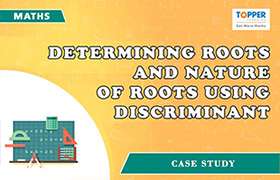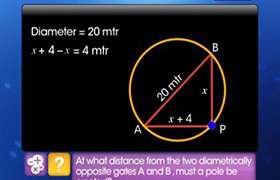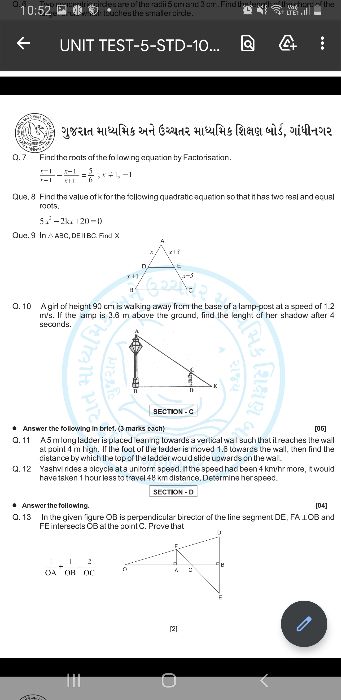CBSE Class 10 Answered
question

Asked by arindeep.singh | 26 Sep, 2020, 10:35: AM
Q: A quadratic equation with integral coefficient has integral roots. Justify you answer.
Solution:
It is not neccesary that a quadratic equation with integral coefficients has integral roots because it will depend on the discriminant, whether it is a perfect square or not and along with that (-b+D^(1/2))&(-b-D^(1/2)) should be a multiple of 2a.
Let us take an example to disprove this statement
Ex:
Quadratic equation is x2 + 3x + 1 = 0
It has integral coefficients
Now D = b2 - 4ac = 32 - 4(1)(1) = 9 - 4 = 5
Here, sqrt{D} is not a perfect square. So, x can't take an integral value.
t is not neccesary because a quadratic with integral coefficient has an integral root or not will depend on discriminant , whether it is a perfect square or not and along with that (-b+D^(1/2))&(-b-D^(1/2)) should be a multiple of 2a.
Ex: equation X^2+3X+1=0 has integral coefficient but not integral roots.
Answered by Renu Varma | 28 Sep, 2020, 10:40: AM
Application Videos
Concept Videos
CBSE 10 - Maths
Asked by rrajansinghakb199 | 08 Apr, 2024, 05:12: PM
CBSE 10 - Maths
Asked by goyelgurav | 18 Dec, 2023, 11:23: PM
CBSE 10 - Maths
Asked by mehraharshit.dk000 | 05 Oct, 2023, 08:05: PM
CBSE 10 - Maths
Asked by atharvsharma971 | 06 Jun, 2022, 10:30: PM
CBSE 10 - Maths
Asked by ankur.spsharma | 02 May, 2022, 11:54: AM
CBSE 10 - Maths
Asked by iambkhatun343 | 14 Feb, 2022, 12:57: AM












